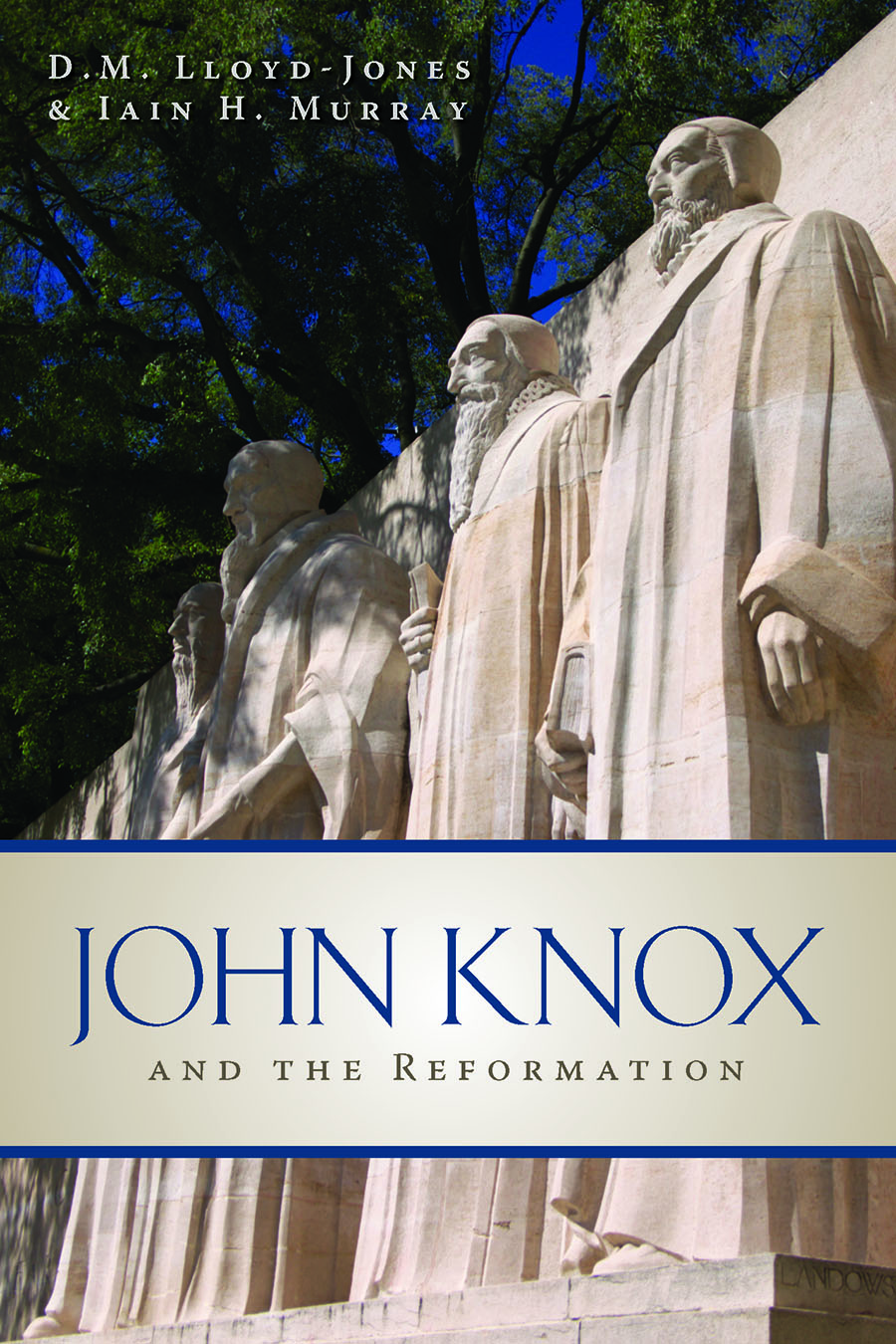John Knox and the Reformation – A Review by Ewan Wilson
If interest in and admiration for a subject can be gauged by the number of popular books produced then it is evident that John Knox’s reputation has been on the wane and even suffering systematic undermining for over the past sixty odd years. Up till the 1930s a reasonable flow of reasonably sympathetic popular treatments on Knox for both the adult layman and school-children could be found. Despite some ambivalence, ever present with regard to Knox, as Murray points out here (p. 113), Knox’s compatriots on the whole continued both to know and hold him in esteem, even if often rather grudgingly! Since the War and with the apparently inexorable spread of Roman Catholic influence and hostile propaganda, it has become virtually impossible to find any such positive works in the mainstream. Stewart Lamont’s The Swordbearer from Hodder is about the only one, though the best remains Elizabeth Whitley’s Plain Mr Knox which, tellingly, only saw the light of day through the Scottish Reformation Society. More academic works such as Rosalind Marshall’s and Roderick Graham’s still appear from time to time but otherwise the pickings are very thin.
Thus it is good to see the Banner issue this little work1 to stimulate interest in the forthcoming 500th anniversary of Knox’s birth in 2014, the year of his birth having been finally ascertained by that most astute and meticulous of Scottish historians, Dr David Hay Fleming, as noted here on p.88.
The book consists of three sections. The first two are transcripts of talks given by Dr Lloyd-Jones in the early 60s, the last being what seems an update by Iain Murray of an address he delivered in 1972. Each of the sections is excellent. The first sees Lloyd-Jones expatiate on the need for and benefits of remembrance. Considering he was speaking as long ago as 1960 his observations on the perilous spiritual and moral prospects seem prophetic! He says: ‘I wonder, Christian people, whether I am exaggerating when I suggest that at the present time we are really engaged in a great struggle for the very life of the Christian church, for the essence of the Christian faith?’ (p.12)
However, it is his next section, with his contention that John Knox was the founder of Puritanism, that your reviewer found the most stimulating. One can feel the passion of his argument jump off the page as he makes his case. Knox, he shows, combined great Christian gifts and virtues, not just his hallmark of courageous reproof but his deep spirituality, prayer life and perhaps more surprisingly, his combination of discrimination and presbyterian moderation in how to apply and accomplish reform! Lloyd-Jones is scathing on Knox’s opponent, the Anglican Richard Cox, who shipwrecked Knox’s efforts in the Frankfurt English exiles’ church. He castigates Cox as one as ‘whose behaviour can only be described abominable, intransigent and rude’ (p.66) and who ‘resorted to the despicable resort of charging John Knox falsely with high treason against the Emperor, the political judge.’ (p.67)
Murray takes up these themes in his own essay and again stresses how we might learn from Knox’s prudent flexibility. He gives a helpful outline of Knox’s Book of Discipline and the practices it enjoined to help advance and consolidate reform.
As Dr Lloyd-Jones is at pains to emphasise, this is not just a book of dry, ‘antiquarian’ interest, but one where both he and Mr Murray seek to draw practical lessons for our own day, one that is not so different from Knox’s as Murray observes: ‘In Scotland today the organized church is viewed with almost the same sort of disdain with which the Church of Rome was viewed before the Reformation . . . the aim of flexibility should be that the church as a whole becomes a missionary force.’ (p.119)
This little book contributes to that aim, conveying both enthusiasm and instruction in how God can transform if we will but engage in ‘the battle’ – as Mr Murray’s essay reminds us is the requirement for the true church militant.
Notes

price From: £5.50Description
If interest in and admiration for a subject can be gauged by the number of popular books produced then it is evident that John Knox’s reputation has been on the wane and even suffering systematic undermining for over the past sixty odd years. Up till the 1930s a reasonable flow of reasonably sympathetic popular treatments […]
This review appeared in the British Church Newspaper, July 2011.
Latest Articles
Finished!: A Message for Easter 28 March 2024
Think about someone being selected and sent to do an especially difficult job. Some major crisis has arisen, or some massive problem needs to be tackled, and it requires the knowledge, the experience, the skill-set, the leadership that they so remarkably possess. It was like that with Jesus. Entrusted to him by God the Father […]
Every Christian a Publisher! 27 February 2024
The following article appeared in Issue 291 of the Banner Magazine, dated December 1987. ‘The Lord gave the word; great was the company of those that published it’ (Psalm 68.11) THE NEED FOR TRUTH I would like to speak to you today about the importance of the use of literature in the church, for evangelism, […]
